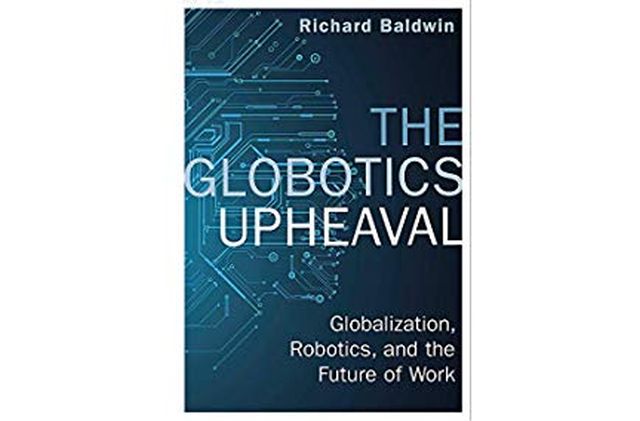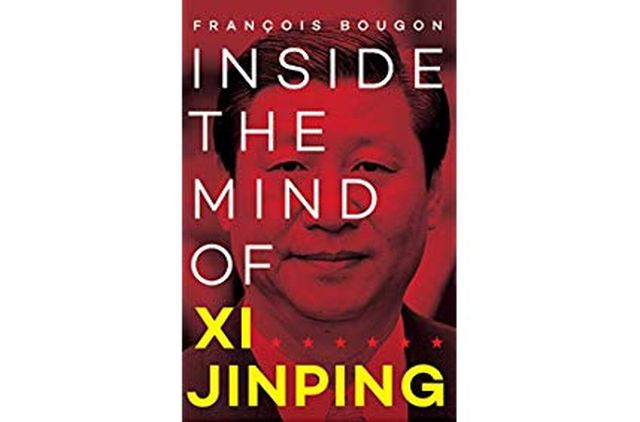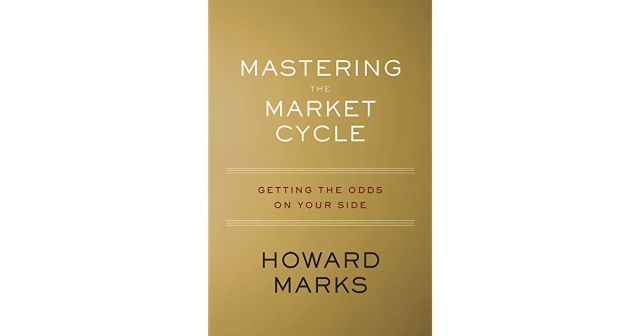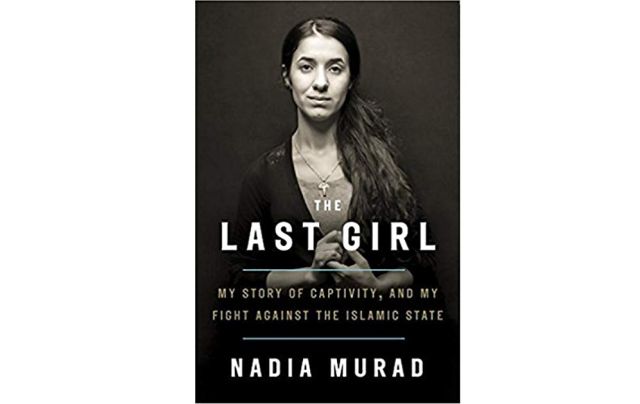
by admin | May 25, 2021 | Books, Markets, Technology
 By Saket Suman,
By Saket Suman,
Book: The Globotics Upheaval-Globalization, Robotics and the Future of Work; Author: Richard Baldwin; Publisher: Orion/Hachette India; Pages: 292; Price: Rs 699
Predictions about job crisis that the advent of robotics and artificial intelligence may unleash in developing as well as developed nations have been doing the rounds for some years now but this timely, well researched book by one of the world’s leading globalisation experts, argues that the speed and nature of this transformation may threaten our capacity to adapt to the expected changes.
Using the term “Globotics” to describe globalisation in the era of robotics, the author Richard Baldwin, maintains that it is different from automation and globalisation for two big reasons: “It is coming inhumanly fast and it will seem unbelievably unfair.”
The book focuses on describing the nature of work in the future and attempts to prepare its prospective readers for the changes. Baldin notes, and discusses at length, the many facets of working life. In doing so, he touches upon different industries — ranging from telecommunications to translations — as well as the work patterns and inherent talents of the workers.
Once the setting for the nature of work in the future is laid, Baldin, who has previously authored “The Great Convergence”, sets on to characterise the work that intelligent robots, advanced softwares and artificial intelligence technology, can do today.
He notes that there is a great deal of work that is already being done through artificial intelligence today, and points out, quite hysterically, that readers at large may even be unaware of some of the minute ways in which the nature of jobs have already undergone change in the 21st century.
Baldwin then attempts to understand, and convey to his readers, how the advancement in artificial intelligence may enable robots to perform many more tasks in the coming years.
He then compares the two: what the robots and artificial intelligence are able to do today and what they can do in the future. This comparison becomes the fulcrum around which his arguments in the book revolve.
He contends that while it may be the case so far that the blue-collar jobs were affected by the rise of robotics, but in the future it will have serious implications on the white-collar jobs too.
The author points out that over the course of the last century, people and industries across the world have understood the significance of applying their mind to things. He maintains that the working culture at large across the globe has undergone a paradigm shift, wherein workers are relying on their heads, rather than, as they would earlier, rely on their hands.
In the future, however, workers across the globe may have to depend on their hearts, more than their hands and heads because while the machines are being prepared to do almost everything that human hands and minds can achieve, they, according to Baldwin, won’t be able to perform the tasks of basic human abilities, such as compassion, face-to-face contact and creativity.
The jobs that are based on these human attributes will be safe for a few decades at least, suggest his findings in the book.
“The Globotics Upheaval: Globalization, Robotics and the Future of Work” is written in simple, accessible language, is footnoted with appropriate references and explanations, wherever required, and makes for an engaging read if one is looking to understand the future of the world we live in.
The book was published in January by Orion Press in the UK, and is now available here, via Hachette India.
(Saket Suman can be contacted at saket.s@ians.in )
—IANS

by admin | May 25, 2021 | Books, World
 By Aroonim Bhuyan,
By Aroonim Bhuyan,
Book: Inside the Mind of Xi Jinping; Author: Francois Bougon; Publisher: Westland Publications; Pages: 181; Price: Rs 599
With Xi Jinping being named President of China for life, a new book explores whether a new doctrine called “Xi-ism” has been etched into Communist political theory.
In “Inside the Mind of Xi Jinping”, author Francois Bougon tries to explain that Xi-ism is “perhaps something similar to Maoism – that sinified version of Marxism-Leninism – that once appealed to so many Western youths”.
Bougon, an economics correspondent at French daily Le Monde who also served as the Beijing correspondent of Agence France-Presse, points out that Xi, ranked as the most powerful and influential person in the world by Forbes magazine in 2018, has achieved the incredible feat of having his name inscribed in the constitution of the Communist Party of China (CPC).
Xi’s magic formula that China must have total faith in its own brand of socialism, blended meaningfully with Chinese tradition, was adopted by the 19th Congress of the CPC in 2017 as “Xi Jinping Thought on Socialism with Chinese Characteristics for a New Era”.
With this, Xi has put himself at the same level as Mao Zedong, the founding father of the People’s Republic of China, given that former Chinese President Deng Xiaoping’s theory was adopted by the 15th Congress in 1997, well after his death.
“Xi, then, has been given ‘linxiu’ status, a term which means ‘leader’ in Chinese, but which up until that point had been reserved for Mao and Deng,” Bougon writes.
The French journalist, who is an expert on Asian issues, refers to Xi’s use of the term “Chinese solution” (Zhongguo fang’an) in his speech at the 95th anniversary of the CPC in July 2016 in which he said: “The whole party must remember that what we are building is ‘Socialiam with Chinese characteristics’, not some other-ism. History has not ended, nor can it possibly end. “To judge ‘Socialism with Chinese characteristics’ we must look to fact, and to the judgment of the Chinese people, and not to the subjective and groundless conclusions of biased people. The (Party) and Chinese people have every confidence in their ability to provide a Chinese solution to aid the search for a better social system for humanity.”
Xi basically meant that China has a solution for the world with the Western democratic model running out of steam.
Bougon writes that Europe is facing difficulties, worn out by Britain’s exit from the European Union, “and has no plan”.
“Inequalities are rising in the rich world and the ‘losers’ of globalisation are ready to vote for parties that promise a strong state,” he states.
“In the United States, the election of Donald Trump caused widespread astonishment and showed how unpredictable democracy can be.”
In the chapter “Culture Wars”, Bougon refers to Xi’s obsession with controlling the media and his calling of a meeting on “the work of reporting” during the 1989 Tiananmen Square crisis when he was holding a government post in the southern province of Fujian, some 1,000 km away from Beijing.
“Reporters must feel the pulse of their time, recognise the role of the news, understand that they are the spokespersons of the Party and the people,” the book quotes Xi as saying in that meeting.
“Their main task is to reflect and guide public opinion.”
Bougon writes that Xi did not seek wealth but was always attracted by power.
“According to the statements of a former acquaintance, gathered by the American Embassy (in Beijing) between 2007 and 2009, Xi was always ‘particularly ambitious’ and ‘never lost track of his goal’ which was to reach the highest echelons,” the book brings to light.
It also refers to late Singapore Prime Minister Lee Kuan Yew’s impression of the Chinese President that he is in Nelson Mandela’s class of people.
“A person with enormous emotional stability who does not allow his personal misfortunes or sufferings to affect his judgment,” Lee was quoted as saying after a meeting with Xi in 2007.
A rivetting biography, “Inside the Mind of Xi Jinping” delves deep into the mindset of the Chinese President.
(Aroonim Bhuyan can be contacted at at aroonim.b@ians.in)
—IANS

by admin | May 25, 2021 | Books
 By Mayabhushan Nagvenkar,
By Mayabhushan Nagvenkar,
Book: Bullocks from the West; Author: N.A. Muthuswamy; Publisher: Westland Books; Pages: 175; Price: Rs 499
If you are living a life in urban India, which passes like a blur each time you open your eyes, the stories in N.A Muthuswamy’s “Bullocks from the West” are representative of an invaluable pause.
A pause which transports the reader back to a life where beasts still share the human burden and prized bullocks are to farmers what Ferraris perhaps are to stock brokers today.
The short story “Bullocks from the West”, from which the book borrows its name, is just one slice of village life, which Muthuswamy captures with his rich description, laced with mystical regional lore.
The story deals with the ambition of a young boy who is in a tearing hurry to tame and train a pair of bullocks and how his hurry leads to a series of events that eventually lead to the beasts being finally sold off.
Another dramatic story, “Panchali”, is a commentary as well as an evocative tale of a village devdasi — a woman offered to a temple and often driven to “socially sanctioned” prostitution — who plays the role of Panchali as part of a popular village ritual.
The story examines the now-outlawed devdasi custom, which was a common practice in Southern states, in the context of a temple procession which goes out of control.
Factual nuggets — like how the date for the ritual where the devdasi is expected to perform was fixed after ascertaining when she was due for her monthly periods — makes for fascinating reading as well as underlines the quality of observation and research conducted by the writer.
The menstrual period is significant because Panchali was undergoing this when she was ordered to present herself to the gambling arena where the Pandavas had already “lost” her to Duryodhana.
Then, there’s the story of Ramayya Padayachi, an old man who believes he is a great general of the Chola king of Kadarankondan and refuses to come to terms with the real world, as it plays out around him.
The solitary play “England”, which accompanies the five stories, is a stinging critique of the social inequities, which did not cease to be despite the independence of India, while also capturing the sum of resistance to British rule.
Set in the hinterland of Tamil Nadu, the book makes the lives in the back of beyond of the South Indian state come alive with liberal use of regional phrases, metaphors and vivid descriptions of the human as well as the natural landscape of these villages.
“Bullocks from the West” has been translated by David Shulman one of the foremost authorities in Indian languages, and S. Ramakrishnan, a publishing editor. And it would take a special team of translators to retain the inherent charm and layered enigma, as well as retain the ultra-regional flourish, which life in a village really is about.
(Mayabhushan Nagvenkar can be contacted at mayabhushan.n@ians.in)
—IANS

by admin | May 25, 2021 | Books
 By Ravi Dutta Mishra,
By Ravi Dutta Mishra,
Book: Mastering the Market Cycle; Author: Howard Marks, Publisher: Hachette India; Pages: 315; Price: Rs 699
In his new book “Mastering the market cycle”, Howard Marks, one of the most successful investment managers, attempts to explain what makes and breaks the market and why economics and business never move in a straight line.
Mark’s client memos are widely read by professionals in the field. He previously wrote “The Most Important Thing”, published in 2011, consisting of 20 investment insights.
In “Mastering the Market Cycle”, he focuses on investor behavior which, according to him, is the key to understanding the highs and lows of a market cycle.
One of the main points Marks asserts is that despite financial facts and figures being the basis of how markets move, this is “only a starting point”.
“People’s decisions have great influence on economics, businesses and market cycles. In fact, economics markets consist of nothing but transactions between people. And people don’t make their decisions scientifically.”
Marks compares investors to electrons on another occasion, borrowing from physicist Richard Feynman’s observation: “Imagine how much harder physics would be if electrons had feelings!”
“That is if electrons had feelings, they couldn’t be counted on to always do what science expects of them, so the rules of physics would work only some of the time,” says the author.
Investors are portrayed as “economic men” but when it comes to taking a decision, Marks says the market spends little of its time calmly weighing financial data and setting prices free of emotionality.
He uses the adage, “markets fluctuate between greed and fear,” to explain that the fundamental reason behind the fluctuation is because people oscillate between greed and fear. This theme of deciphering investors behavior runs across the book and is the heart of how he explains the market cycle.
Based on his memos and experiences over the years, Mark’s book has a great deal to offer for investors and market enthusiast from around the globe. The back cover carries a compliment from Warren Buffet: “When I see memos from Howard Marks … I always learn something.”
Investment, Marks says, is like the choosing of a lottery winner. Both are determined by a ticket being pulled from a bowlful of tickets. The superior investors according to the author, are people who have a better sense of which tickets are in the bowl, or whether it’s worth participating in the lottery.
Howard’s book is not just for the people who understand trading or for experts who deal with market cycles. It can be enjoyed with a fundamental understanding of economics and business but could have been better with fewer repetitions.
However, to single out a niche audience for whom “Mastering the Market Cycle” is a must read are people interested in behavioral finance.
The book may inspire an Indian expert to explain the market cycles taking the readers through the Dalal Street and the 1991 balance of payment crisis in India than Wall Street and the 2008 financial crisis that originated in the US, as Marks says in this book.
(Ravi Dutta Mishra can be rached at ravi.m@ians.in)
—IANS

by admin | May 25, 2021 | Books
 By Saket Suman,
By Saket Suman,
Book: The Last Girl; Author: Nadia Murad; Publisher: Vergo Press/Hachette India; Pages: 306; Price: Rs 499
She suffered at the hands of the Islamic State, was held captive as a sex slave, but went on to become a human rights campaigner and was awarded the 2018 Nobel Peace Prize jointly with Congolese gynaecologist Denis Mukwege. In her memoir, “The Last Girl”, Nadia Murad recalls the dreadful sequence of events that led to her captivity and reflects on the life she has been leading thereafter.
It is a painful story, of a life shattered all of a sudden, that left Murad with little hope of freedom. But it inspired her to visualise a change in the world — with the powerful weapon of her own story as the instrument of change.
In August 2014, Islamic State militants laid siege on Murad’s village, Kocho, in Iraq. The militants showed no mercy and first executed almost all the men and older women, which included Murad’s mother and six brothers. All of them were buried in mass graves as younger women like Murad, who were spared, looked on hopelessly.
The younger women were then kidnapped by the IS militants and were sold as sex slaves, where they were held captive, tortured and raped by several militants. She was barely 21 years old, but the militants knew no mercy.
“The slave market opened at night. We could hear the commotion downstairs where militants were registering and organising, and when the first man entered the room, all the girls started screaming. It was like the scene of an explosion. We moaned as though wounded, doubling over and vomiting on the floor, but none of it stopped the militants,” she recalls in the memoir, first published in the United Kingdom by Virgo Press, and now here by Hachette India.
She adds that the militants paced around the room, staring at them, while they screamed and begged.
“They gravitated toward the most beautiful girls first, asking, ‘How old are you?’ and examining their hair and mouths. ‘They are virgins, right?’ they asked a guard, who nodded and said, ‘Of course!’ like a shopkeeper taking pride in his product. Now the militants touched us anywhere they wanted, running their hands over our breasts and our legs, as if we were animals,” Murad recounts.
After she was sold to a jihadist in Mosul, an opportunity to escape arrived when she found the front door unlocked. Murad escaped to Kurdistan, posing as the wife of a Sunni man, Nasser, who literally risked his life and everything he had to take her to safety.
But the relief did not last long as Murad and Nasser were detained by Kurdish officials and forced to testify about their escape.
“I was quickly learning that my story, which I still thought of as a personal tragedy, could be someone else’s political tool,” she notes.
In early 2015, Murad went as a refugee to Germany and later that year she began to campaign to raise awareness of human trafficking. She was invited to Switzerland to speak at a UN forum on minority issues.
“It was the first time I would tell my story in front of a large audience. I wanted to talk about everything — the children who died of dehydration fleeing ISIS, the families still stranded on the mountain, the thousands of women and children who remained in captivity, and what my brothers saw at the site of the massacre.
“I was only one of hundreds of thousands of Yazidi victims. My community was scattered, living as refugees inside and outside of Iraq, and Kocho was still occupied by ISIS. There was so much the world needed to hear about what was happening to Yazidis,” she writes.
In the memoir, Murad maintains that her story, “told honestly and matter-of-factly”, is the best weapon she has against terrorism. She emphasises that she plans on using it until the terrorists are put on trial, and reminds those in power that there is still so much that needs to be done. She urges the world leaders, particularly Muslim religious leaders, to stand up and protect the oppressed.
Murad says in the book that she wishes to look into the eyes of the men who raped her and see them brought to justice. And she is vocal about her sufferings as well as what she wants the authorities to do because she, as the title of her memoir says, wants to be “The Last Girl” with a story like hers.
(Saket Suman can be contacted at saket.s@ians.in)
—IANS





